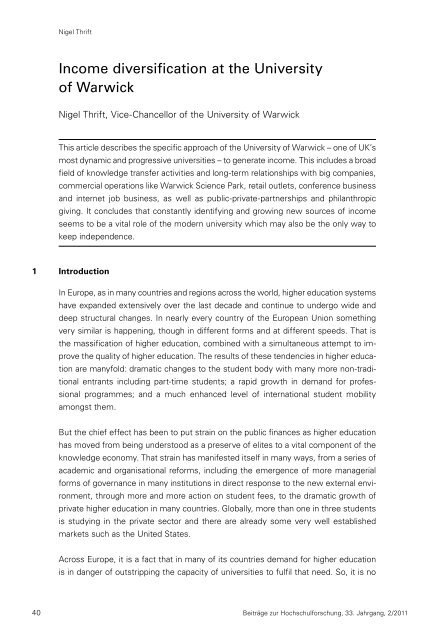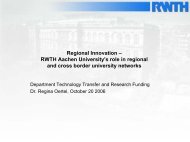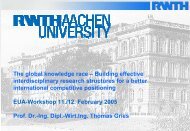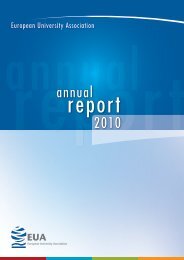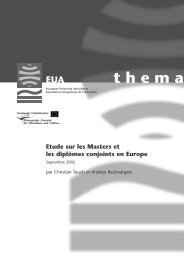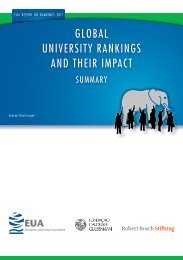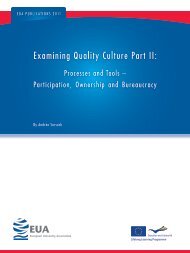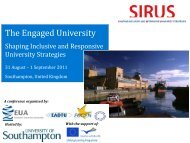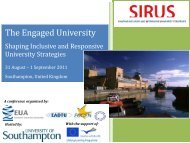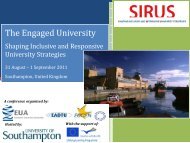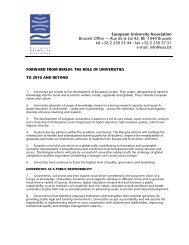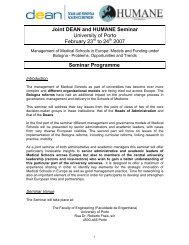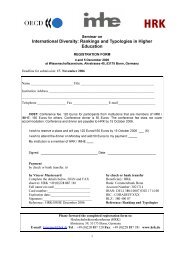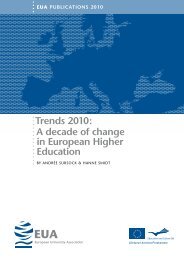Beiträge zur Hochschulforschung - European University Association
Beiträge zur Hochschulforschung - European University Association
Beiträge zur Hochschulforschung - European University Association
Create successful ePaper yourself
Turn your PDF publications into a flip-book with our unique Google optimized e-Paper software.
40<br />
Nigel Thrift<br />
Income diversification at the <strong>University</strong><br />
of Warwick<br />
Nigel Thrift, Vice-Chancellor of the <strong>University</strong> of Warwick<br />
This article describes the specific approach of the <strong>University</strong> of Warwick – one of UK’s<br />
most dynamic and progressive universities – to generate income. This includes a broad<br />
field of knowledge transfer activities and long-term relationships with big companies,<br />
commercial operations like Warwick Science Park, retail outlets, conference business<br />
and internet job business, as well as public-private-partnerships and philanthropic<br />
giving. It concludes that constantly identifying and growing new sources of income<br />
seems to be a vital role of the modern university which may also be the only way to<br />
keep independence.<br />
1 Introduction<br />
In Europe, as in many countries and regions across the world, higher education systems<br />
have expanded extensively over the last decade and continue to undergo wide and<br />
deep structural changes. In nearly every country of the <strong>European</strong> Union something<br />
very similar is happening, though in different forms and at different speeds. That is<br />
the massification of higher education, combined with a simultaneous attempt to im-<br />
prove the quality of higher education. The results of these tendencies in higher educa-<br />
tion are manyfold: dramatic changes to the student body with many more non-tradi-<br />
tional entrants including part-time students; a rapid growth in demand for profes-<br />
sional programmes; and a much enhanced level of international student mobility<br />
amongst them.<br />
But the chief effect has been to put strain on the public finances as higher education<br />
has moved from being understood as a preserve of elites to a vital component of the<br />
knowledge economy. That strain has manifested itself in many ways, from a series of<br />
academic and organisational reforms, including the emergence of more managerial<br />
forms of governance in many institutions in direct response to the new external envi-<br />
ronment, through more and more action on student fees, to the dramatic growth of<br />
private higher education in many countries. Globally, more than one in three students<br />
is studying in the private sector and there are already some very well established<br />
markets such as the United States.<br />
Across Europe, it is a fact that in many of its countries demand for higher education<br />
is in danger of outstripping the capacity of universities to fulfil that need. So, it is no<br />
<strong>Beiträge</strong> <strong>zur</strong> <strong>Hochschulforschung</strong>, 33. Jahrgang, 2/2011


